The Oswald Family after 1963
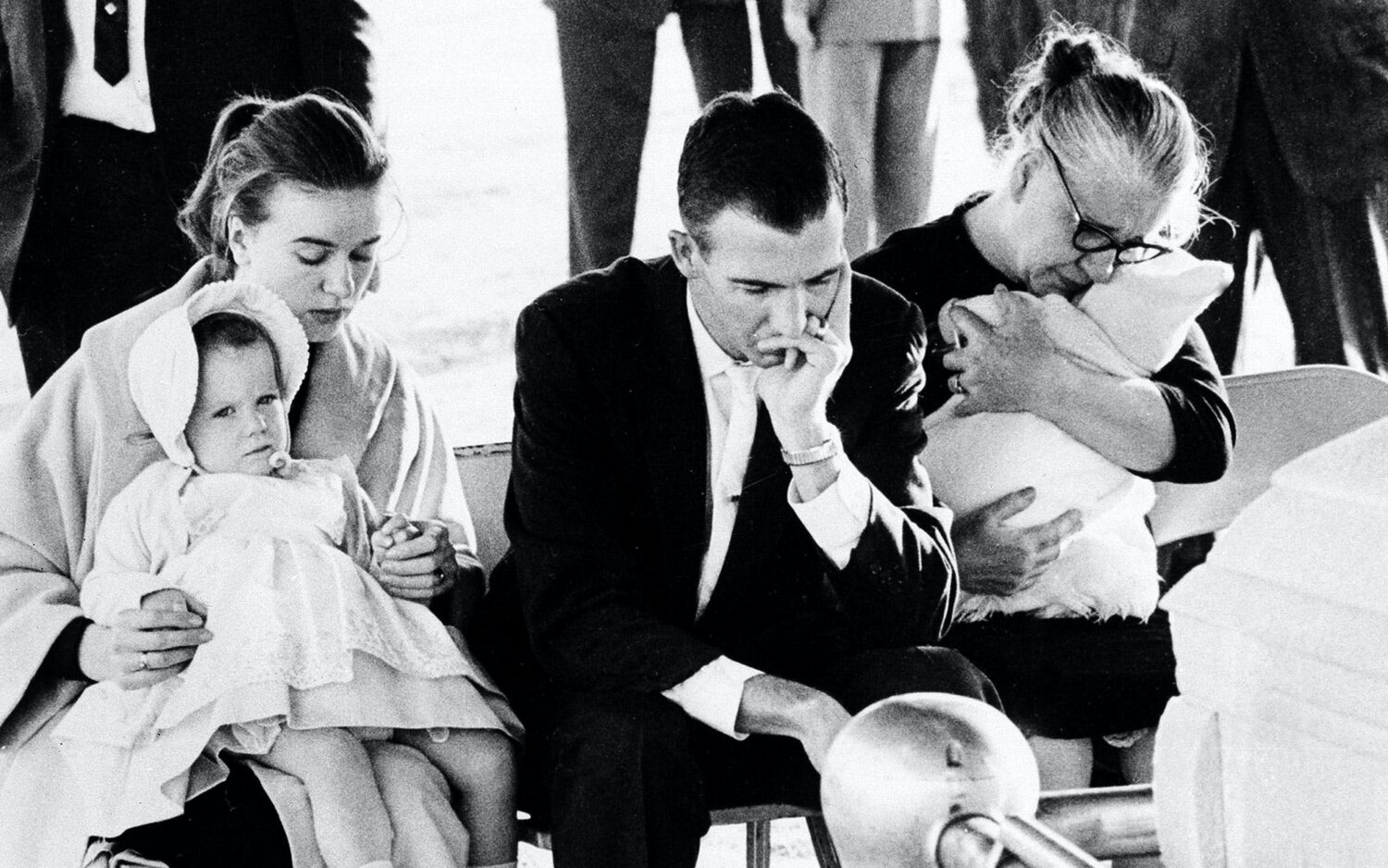
When Lee Harvey Oswald died, he left behind a small family. His own young family with two daughters, and the family in which he himself grew up. How did the Oswald family fare after 1963?
Photo above: Marina Oswald with June, Marguerite Oswald with Rachel and in between them older brother Robert Oswald.
Oswald’s greatest advocate was his mother, the self-proclaimed ‘Mother of History,’ Marguerite Oswald. Clearing her son’s name consumed Marguerite’s life after November 1963. In February 1964, she already denied before the Warren Commission: her son was innocent and in the service of the U.S. government. Until her death, she glorified him in the media, stating, ‘Lee Harvey Oswald has meant more to this country even after his death than any other still-living person.’
On January 17, 1981, Marguerite Frances Claverie Oswald passed away at the age of seventy-three due to cancer. She was buried next to her son. After November 1963, she never spoke to her daughter-in-law Marina again, and she saw her sons only rarely. An interview in 1976 revealed the loneliness and bitterness that marked her final years: ‘I have no family. I brought three children into this world, I have sisters, nieces, nephews, grandchildren, but I am all alone. That says enough about my situation. And now I don’t want to hear anything more about it.’
Especially Oswald’s brother, Robert Oswald, vehemently disagreed with his mother. ‘My brother acted alone, and it was an irrational act. I despise people like filmmaker Oliver Stone, who proclaim their truth with many lies.’ According to Robert, all the facts were on the table, and it could only be that his younger brother was guilty of the assassination of John F. Kennedy. ‘The mind tells me one thing, the heart tells me something else, but the facts are there.’ Like his mother, he often appeared in the public eye: in 1967, he even wrote a book, “Lee: A Portrait Of Lee Harvey Oswald, By His Brother.” Thanks to its proceeds, he obtained an academic degree in 1970.
He resided in Texas all his life with his wife Vada, until he died in November 2017. He was 83 years old. Robert lived in Wichita Falls, about 150 kilometers from Dallas. He avoids discussing the JFK assassination with his grandchildren: ‘They would only worry.’ His own children, Robert and Cathy, did not have an easy upbringing. Until well into the 1970s, they faced challenges due to their surname. However, Robert Oswald never hesitated when offered a different last name: ‘Our name goes back to colonial times. I never considered taking another one.’ In Texas and beyond, dozens of Oswalds did not follow his example; they changed their family name immediately after JFK’s assassination.
While Robert Oswald regularly provided commentary in the media, no one has heard anything more from John Pic. Lee Harvey Oswald’s half-brother completely disappeared into anonymity, and it is only known that he passed away in 2000 at the age of sixty-eight. He had lived in Florida since 1971 and left behind five children. His wife Margaret, who was threatened with a pocket knife by the twelve-year-old Oswald in 1952 after a disagreement, had already passed away in 1994. It is not known whether John Pic, like his mother, believed in Oswald’s innocence.
Marina Oswald occasionally appeared in the American media but now leads a reclusive life in Texas. Thanks to the financial gifts she received from the American public, which grew to over a quarter of a million dollars, she could buy a bungalow on the outskirts of the city. New furniture, a car, and a boat: Marina’s life changed 180 degrees after Oswald disappeared from her life. Soon after, she met a new man, the carpenter Kenneth Porter. The couple married on July 1, 1965, and soon had a son, Mark. Although their marriage ended in 1974, Marina and Kenneth still live together on a farm just outside Dallas, surrounded by an estate of over 4000 square meters (I took a visit in 2013). She has always continued to use the name Porter.
Marina is now over eighty years old. She worked for many years in her friend Linda Wilson’s military surplus store. The chain-smoking and extremely frugal Russian-born woman, who officially became an American in 1991, no longer believes in Oswald’s guilt – although her views have changed over the years. She is angry at the man who left her in an impossible situation in 1963. She told the Warren Commission that she had no doubt about her ex-husband’s guilt in the JFK assassination. ‘They didn’t tell me everything,’ Marina later explained. ‘I only heard what cast Oswald in a bad light. I was very tired, partly because I was walking around with a baby only a few weeks old. In addition, I was indoctrinated. It was demanded that I cooperate if I wanted to stay in the United States.’ At that time, in early 1964, Marina also repeatedly expressed in the press that she was incredibly ashamed of what her husband had done. Even in 1980, seventeen years after the assassination, she declared that Oswald was guilty. But, she said, he didn’t act alone.
Marina publicly expressed her doubts for the first time in 1988, twenty-five years after the assassination. ‘It was a complicated conspiracy, brilliantly executed. Would there be sensible people who believe that this murder was committed by one man? Oswald declared himself the scapegoat after the murder. With everything that has come to light, I am increasingly inclined to believe that he spoke the truth. Before the Warren Commission, I was like a puppy. Only twenty-three years old and immature. I think differently now. Only half the truth has come to light, and this beautiful country deserves the whole truth.’ A few years later, in 1992, she added that ‘Oswald simply did not shoot. I believe in a conspiracy, perfectly organized and later covered up.’ On November 22, 1996, she even shared her opinion on Oprah Winfrey’s show. ‘I don’t want to convince the American people. That’s not my intention at all. I just want to be clear for myself,’ she also told author Norman Mailer at that time.
Unlike her mother, daughter June is not eager for media attention. She has only given a few interviews, the last to The New York Times in April 1995. June, born on February 15, 1962, in Minsk, uses the last name of the man she divorced in 1992, the father of her two now-adult sons. In the newspaper, June stated that she had a happy childhood, mainly thanks to the efforts of Kenneth Porter, her stepfather. Of course, she also had less positive experiences: a boyfriend once said he wanted children with her ‘so that Oswald’s blood would flow through his children.’ The boyfriend’s parents did not allow June to visit their home; it would not be good for the value of the house. She graduated and built a successful business career with extensive travel around the world. On a small scale, she has been involved in the Kennedy assassination: in the 1990s, she worked to make still-secret documents public. She also regularly expressed concern about the manipulative way the media treated her mother. She has no memory of the time with her father, the assassination, or the first years afterward; she was very young then. Her first memories include eavesdropped phone calls and a mother who was always extra nervous and chain-smoking in November. ‘Only when I was about seven did I learn who my real father was. And when we were taught about Kennedy’s presidency at school, I had to stand in the hallway. But oh well, I didn’t mind. My sister Rachel had a much harder time. She was much more concerned with her biological father than I was. Whether he was guilty of the murder or not, for me, he is mainly the man who was a bad husband and who hit my mother. Who was often not around and did not provide a good roof over our heads. The relationship with my family is sensitive. My mother is increasingly involved in a personal crusade, getting more and more involved with people dealing with conspiracy theories. Often without involving or informing Rachel and me. Rachel sees her father as a hero and identifies with him. We have a close bond, except when it comes to this topic. Even if my father were innocent, he would still not be a hero. Then he would be a martyr.’
Rachel is a year and a half younger than June and was born in Dallas on October 20, 1963, in the house of Marina’s friend Ruth Paine. Although she has always been focused on her father, Rachel has rarely sought out the media. One of the few times she truly stepped into the spotlight was in the early 1990s when she was interviewed by author David Lipton for the Hard Copy program. In that broadcast, Rachel stated that, after studying all the facts, she increasingly leaned toward believing in a conspiracy: ‘He was a victim, lured into the trap for the crime of the century. My whole life turned upside down when I came to these insights. Of course, he was involved; what else was he doing there? But I don’t think he fired the fatal shot. I want to get to know my father. Not Oswald the murderer, but Oswald the father. My father.’ Rachel, a baby of less than five weeks old during Kennedy’s assassination, harbored empathetic feelings toward the Kennedy family: ‘What will they feel every November? How painful will it still be for them? And will they ever wonder how painful it still is for me?’ Rachel is now a registered nurse. She became a tourist attraction in the early 1990s when a travel agency from the Texan capital Austin mentioned her part-time job in a restaurant in a brochure. Rachel has also had her share of challenges. In the interview with Lipton, she said, ‘If I could ask my father something? How could you leave your wife and two children with such a burden?’
Both daughters express immense respect for their mother. She provided them with as normal a life as possible, while her own existence must have been like a never-ending roller coaster for forty-five years. June: ‘She kept us together. She remained a strong woman. I don’t know if I could have done it: two small children, she didn’t speak the language, had no money, and had all these Americans with opinions around her… She managed it all. And she did it all for us.’

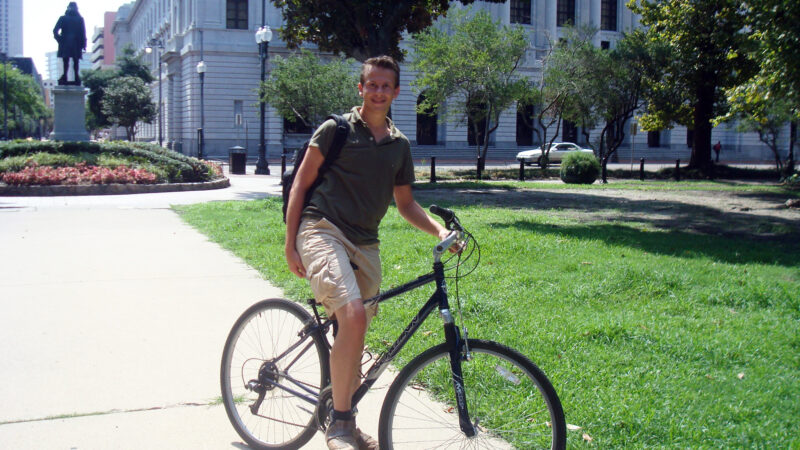
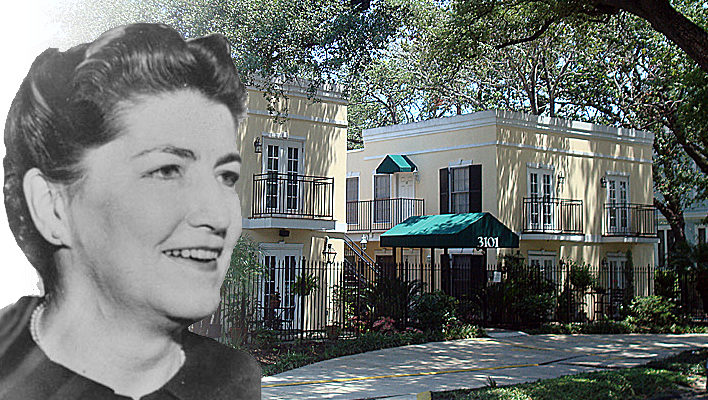
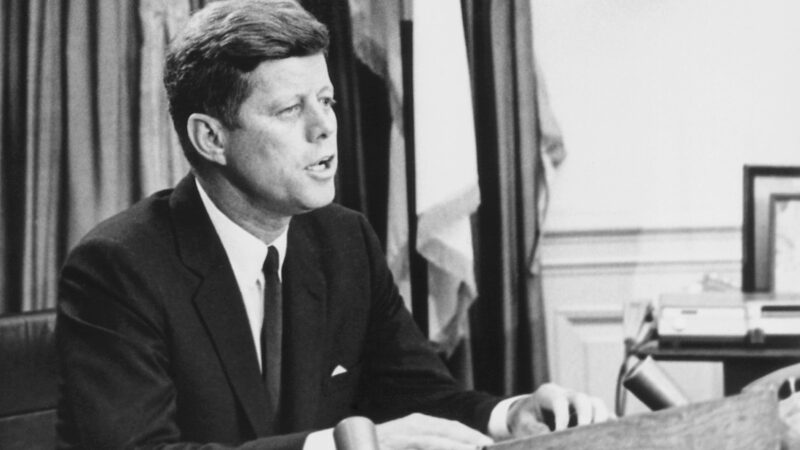
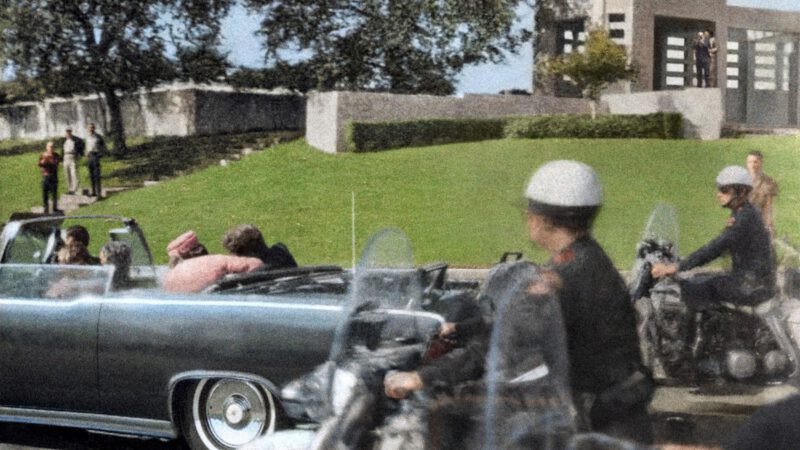
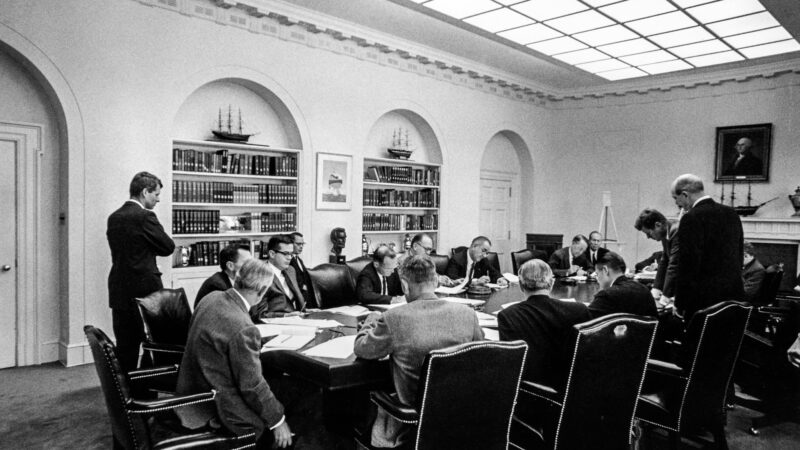

my taco reeks